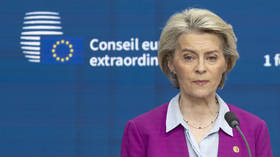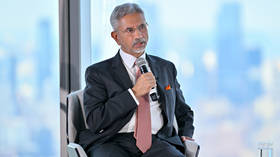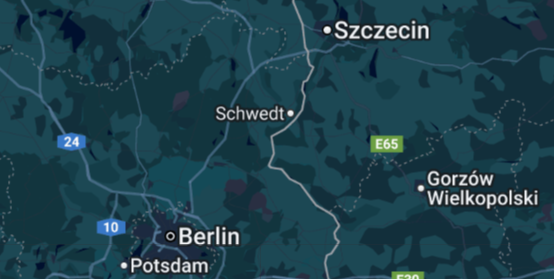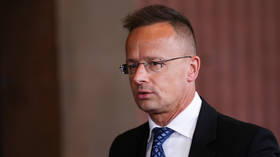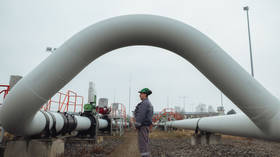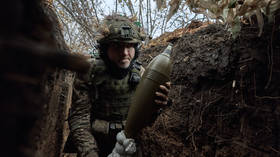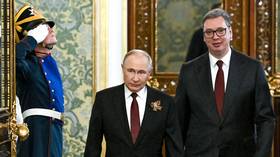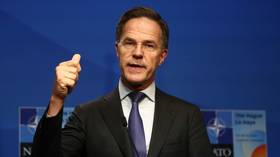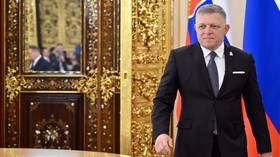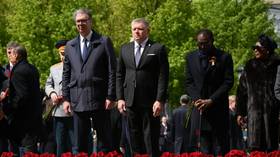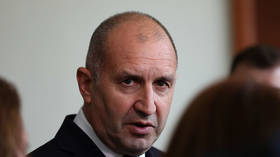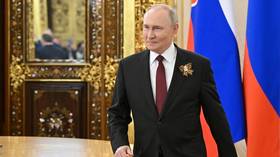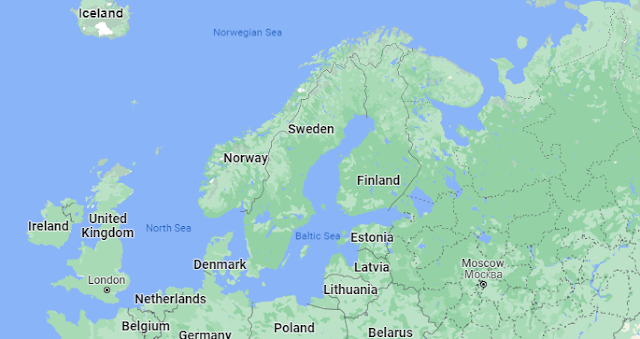EU nation ‘ready to fight’ for Russian gas – PM

Slovakia is “ready to fight” for its right to import Russian gas and will continue to block Brussels’ proposals to phase out Russian energy, Prime Minister Robert Fico said on Saturday.
Fico stressed that energy security is a strategic priority for Slovakia, and that EU efforts to change its supply mix threaten national sovereignty.
Slovakia vetoed the EU’s 18th round of sanctions on Russia for the second time on Friday, citing concerns over the RePowerEU plan, which seeks to cut Russian energy imports by 2028. The plan is being discussed alongside sanctions targeting Russia’s energy and financial sectors.
Brussels is seeking to pass the phase-out as trade legislation – requiring only a qualified majority. Fico insists, however, that the plan amounts to sanctions and must be unanimously approved. He previously warned that the move could jeopardize energy security, raise prices, and trigger costly arbitration with Gazprom over Slovakia’s long-term energy contract.
Speaking during celebrations for Slovakia’s Saints Cyril and Methodius Day, Fico called the phase-out plan a “disruption” of Slovakia’s national interests.
“We refuse to support another sanctions package against the Russian Federation, unless we know who will protect us, and how, and compensate for the damage that will be caused to Slovakia by the ideological proposal of the European Commission to stop supplies of Russian gas,” he said.
“Slovakia wants to be sovereign and self-determined. And we must answer whether we are ready to fight for it. I am ready to fight this difficult battle. We are going to get through it.”
Fico added that vetoing the phase-out means “fighting for our households and businesses” so they won’t bear the costs of “harmful ideological decisions” from Brussels.
He went on to say that Slovakia is at a crossroads – between giving in to pressure from “bureaucratic structures” in Brussels and defending its interests. He urged the public to choose the latter and accused the EU of ignoring national interests and violating international law by forcing harmful policies onto member states. Fico argued that Slovakia must pursue cooperation “based on equality and mutual benefit,” not external political agendas.
Hungary has also blocked the Russian energy phase-out plan, with Foreign Minister Peter Szijjarto warning that it would “destroy Hungary’s energy security” and cause price spikes.
Moscow has condemned the Western sanctions as illegal and counterproductive, particularly those targeting energy, noting that energy prices in the EU surged after the initial sanctions on Russia were introduced in 2022. Russian officials warn that the EU’s rejection of Russian supplies will push it toward more expensive imports or rerouted Russian energy via intermediaries.
German town wants Russian oil back – Politico
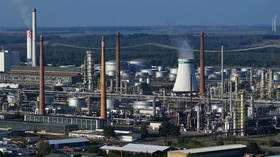
The authorities in the German town of Schwedt want sanctions on Russian oil lifted due to growing problems at a local refinery that depended on Russian supplies, Politico reported on Friday, citing local officials.
The report focuses on Germany’s fourth-largest refinery, Schwedt PCK, where Rosneft remains the majority owner. The facility, which supplies over 90% of the oil used by the city of Berlin, lost access to Russian crude in 2022 after Moscow halted pipeline deliveries to Poland and Germany due to EU sanctions.
Though the plant switched to alternate supplies, it has not returned to full capacity and currently operates at 80%, Danny Ruthenberg, chief of the refinery’s works council, told the outlet. He warned the facility is now “in the red” due to having fixed operating costs and could be forced to begin layoffs if the situation persists.
Schwedt Mayor Annekathrin Hoppe told Politico the refinery’s troubles threaten the entire town given that about 20% of Schwedt’s 30,000 residents depend on it for their livelihood.
“The refinery is the reason the town exists,” Hoppe said, adding that she would appeal to the federal government for action, including through resuming Russian imports.
“Of course we don’t accept the war… but traditionally we have always had good relations with Russia.”
Ruthenberg echoed the sentiment, saying renewed Russian supplies could stabilize operations. “When peace is there again, then you have to trade with Russia,” he stated.
Russian energy exports to the EU dropped sharply due to sanctions and further declined after Kiev let a key gas transit deal expire in January. Brussels has since been pushing to phase out Russian energy imports altogether by 2028. However, countries such as Slovakia and Hungary oppose the move, while experts and opposition parties across the bloc are urging a return to Russian supplies, particularly since Moscow and Kiev resumed direct talks on a potential peace deal earlier this year.
“Pressure will definitely grow” on the German and EU authorities, Stefan Meister of the German Council on Foreign Relations told Politico, as “more voices from different companies… politicians on the local level demand returning to cheap Russian oil and gas.” Sources in Brussels also told Politico that if Germany reversed course on Russian energy, other EU nations, such as Italy, Austria, Bulgaria, and the Czech Republic, would likely follow.
Moscow has repeatedly condemned Western sanctions as illegal and self-defeating, especially those targeting energy, pointing to price spikes in the EU following the initial measures against Russia in 2022. Russian officials have warned that the bloc’s rejection of its supplies will force it to rely on costlier alternatives or indirect Russian imports via intermediaries.
